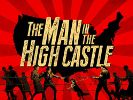Alternating history

I love alternate histories. They are the greatest of “what ifs.” The biggest trope in this genre: What if the Allies lost World War II? But before it was even a trope, Philip K. Dick wrote the novel The Man in the High Castle. The U.S. is divided by the Nazis in the east and the Empire of Japan in the west and some very mysterious stuff is going on (with Dick you are rarely allowed to figure all of it out).
Whether it’s the weirdness of Dick’s stories or their magnificence, Hollywood loves them. First came “Bladerunner,” based on the novel Do Androids Dream Electric Sheep? and ushering in cyberpunk before the cyberpunk authors knew what they were about to do. Dick was the proto-punk, the Lou Reed of science fiction.
Took a few more years for the rest of Hollywood to catch on, after which it seemed movies were being made of everything with Dick’s name on it. Makes and remakes and remakes again (see “Total Recall,” from the novel We Can Remember It For You Wholesale). I’m waiting for one of his prefaces to get turned into a film.
This is not to say I was disappointed when Amazon rolled out a pilot for “The Man in the High Castle.” With Amazon, you watch the pilot and then vote on whether they should make a series. (Michael Connelly’s Harry Bosch mystery series became TV this way. It premieres on Amazon as “Bosch” this month.) “The Man in the High Castle” pilot was excellent. The mysteries layered on mysteries are there. Nazi New York and Japanese-controlled San Francisco are real in the way alternate history must make you believe what didn’t happened did. Check the pilot out and vote (so I can watch the series).
Update: “The Man in the High Castle” received a full-series order from Amazon, The Hollywood Reporter wrote Feb. 18. THR said Amazon Studios exec Roy Price called “High Castle” Amazon’s “most watched pilot ever.”